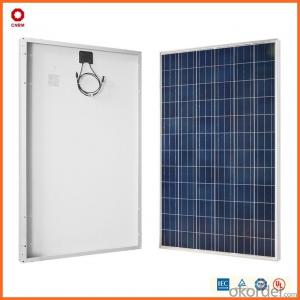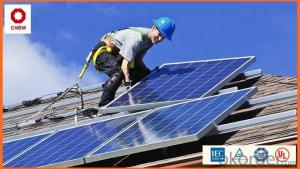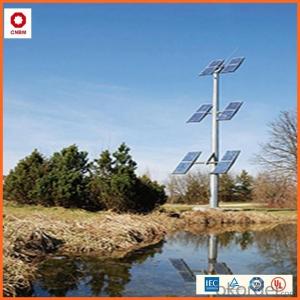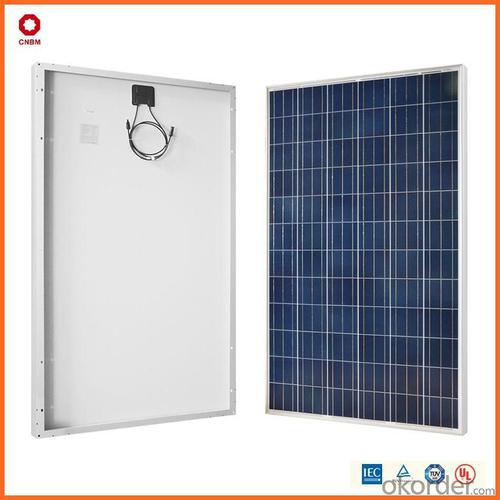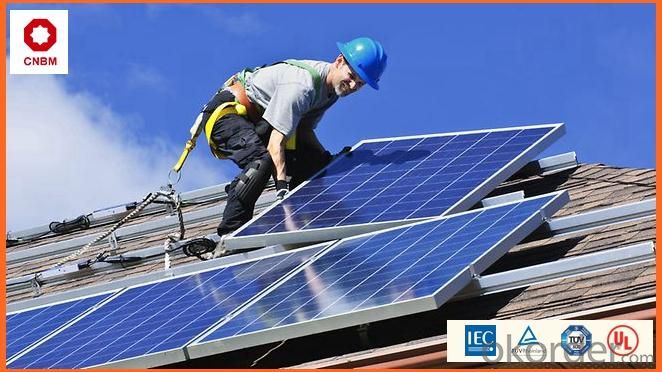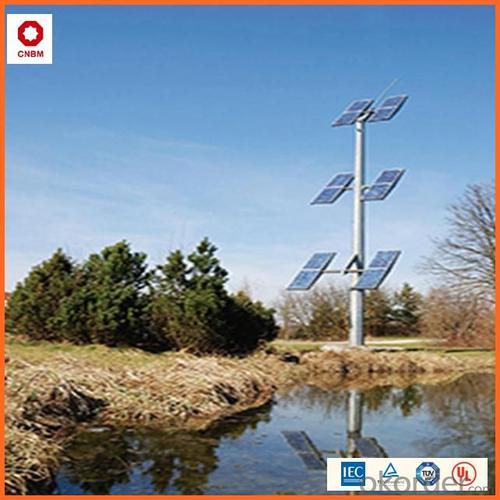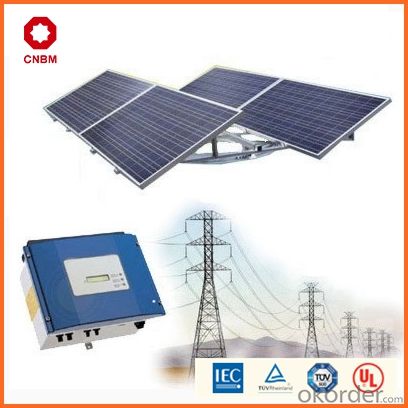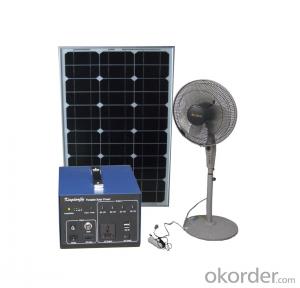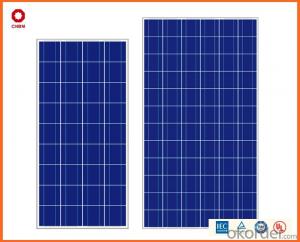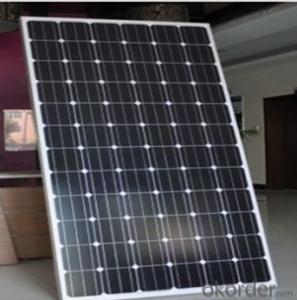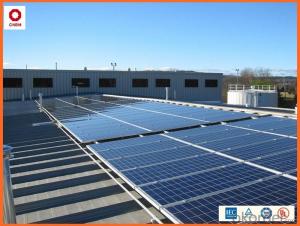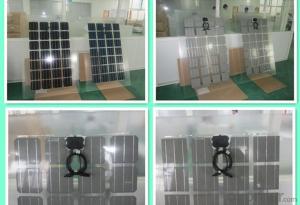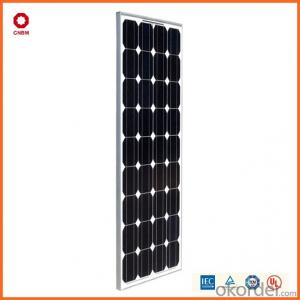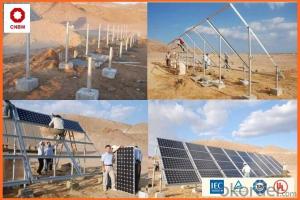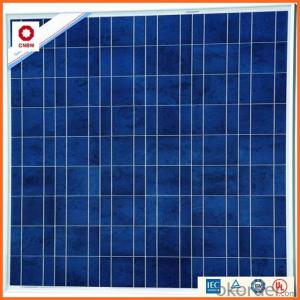Wind and Solar Energy Systems - 50w Small Solar Panels in Stock China Manufacturer
- Loading Port:
- China main port
- Payment Terms:
- TT OR LC
- Min Order Qty:
- 1 watt
- Supply Capability:
- 10000000 watt/month
OKorder Service Pledge
OKorder Financial Service
You Might Also Like
Specification
Product Description:
Hot Sale !!! Quality and Safety of Small Poly Solar Panel 5w~150w
1. Rigorous quality control meets the highest international standards.
2. High-transmissivity low-iron tempered glass, strong aluminium frame.
3. Using UV-resistant silicon.
4. IS09001/14001/CE/TUV/UL
Warranties of Small Poly Solar Panel 35~85w
1. 10 years limited product warranty
2. 15 years at 90% of the minimal rated power output
3. 25 years at 80% of the minimal rated power output
Specification
Characteristics of Poly solar panels CNBM (245-320W) | |||||
Max Power Voltage Vmp(V) | 30.3 | 30.8 | 31.1 | 31.4 | 31.85 |
Max Power Current Imp(A) | 7.60 | 7.64 | 7.73 | 7.81 | 7.85 |
Open Circuit Voltage Voc(V) | 36.1 | 36.6 | 37 | 37.3 | 37.68 |
Short Circuit Current Isc(A) | 8.50 | 8.55 | 8.65 | 8.75 | 8.85 |
Max Power Pm(W) | 230W | 235W | 240W | 245W | 250W |
Temperature Coefficient of Cells Poly solar panels CNBM (245-320W) | |
NOCT | 45± 2 |
Temperature Coeffucients of Isc | 0.0492 |
Temperature Coeffucients of Voc | -0.3374 |
Temperature Coeffucients of Voc | -0.4677 |
Mechanical Data of Poly solar panels CNBM (245-320W) | |
Dimension | 1638 × 982 × 40 mm |
Weight | 19.5 kg |
No. of Cells and Connections | 60 (6 ×10) |
Tolerance | 0 ~ + 5 W |
Cell | Monocrystalline Cell 156 × 156 mm |
Packing | 624 Pcs/40ft(H) Container |
Limits of Poly solar panels CNBM (245-320W) | |
Operating Temperature | -40 to +85 |
Storage Temperature | -40 to +85 |
Max System Voltage | 1000VDC(IEC) / 600VDC(UL) |
Features of our products:
• High conversion efficiency mono/poly-crystalline amorphous silicon solar cells
• Modules incorporate high performance bypass diodes to minimize the power drop caused by shading
• High transmittance, low-iron tempered glass
• High performance EVA encapsulant to prevent destroying and water.
• AI frame: without screw, corner connection. 8 holes on the frame can be installed easily
• Good performance of preventing from atrocious weather such as wind and hails
• Certifications: CE IEC TUV VDE UL, Class I
• 10 years 90% power output warranty

Shipping of Small Poly Solar Panel 35~85w
By Sea | Delivery from Shanghai or Ningbo seaport |
By Air | Departure from Shanghai Pudong Airport |
By Express | Post by DHL, EMS, UPS, TNT. |
Features of our products:
• High conversion efficiency mono/poly-crystalline amorphous silicon solar cells
• Modules incorporate high performance bypass diodes to minimize the power drop caused by shading
• High transmittance, low-iron tempered glass
• High performance EVA encapsulant to prevent destroying and water.
• AI frame: without screw, corner connection. 8 holes on the frame can be installed easily
• Good performance of preventing from atrocious weather such as wind and hails
• Certifications: CE IEC TUV VDE UL, Class I
• 10 years 90% power output warranty
As a professional Solar Panel manufacturer and Supplier in China, we have our customers come around the whole world and our specialization has got a worldwide recognition. Meanwhile, with our superior quality, competitive price, prompt and excellent service, As main role in trade section of CNBM Group, CNBM International Corporation supplies products including Monocrystalline Solar Panel, Polycrystalline Solar Panel ( multicrystalline silicon Solar Panel) have received and enjoyed famous reputation in many countries and regions in the world.
- Q: What is the role of solar trackers in solar energy systems?
- The role of solar trackers in solar energy systems is to optimize the efficiency of solar panels by continuously adjusting their orientation to track the movement of the sun throughout the day. This allows the panels to capture the maximum amount of sunlight and generate more electricity, increasing the overall energy output of the system.
- Q: How do solar energy systems affect the resale value of homes?
- Solar energy systems can have a positive impact on the resale value of homes. Studies have shown that homes equipped with solar panels tend to sell for a higher price and at a faster rate compared to homes without solar systems. This is because potential buyers are attracted to the prospect of lower energy bills, increased energy efficiency, and the environmental benefits that come with solar energy. Additionally, solar systems often come with attractive financial incentives and tax credits, making them an appealing investment for homeowners and potential buyers alike.
- Q: Do solar energy systems require surge protection?
- Yes, solar energy systems require surge protection.
- Q: How much space do solar panels take up on a roof?
- The amount of space solar panels take up on a roof depends on several factors such as the size and type of panels used, as well as the specific layout and orientation of the roof. On average, solar panels typically require around 10-12 square feet of space per kilowatt of power capacity.
- Q: How does the size of a solar energy system affect its output?
- The output of a solar energy system is directly influenced by its size. Generally, as the size of the system increases, so does its electricity generation. Kilowatt-hours (kWh) measure the output, which is determined by the system's capacity, usually expressed in kilowatts (kW). A solar energy system's ability to generate more electricity is attributed to its larger size and higher capacity. This is because it contains a greater number of solar panels, which are the primary components responsible for converting sunlight into electricity. Solar panels consist of multiple solar cells that absorb sunlight and produce direct current (DC) electricity. When solar panels are connected together in a solar energy system, their combined capacity increases. Consequently, more solar cells work together to convert sunlight into electricity, resulting in a higher output. A larger solar energy system, especially during peak sunlight hours, can generate more electricity due to the abundance of sunlight available for conversion. Furthermore, a larger solar energy system may include additional components, such as inverters and batteries, to further enhance its output. Inverters convert the DC electricity generated by the solar panels into alternating current (AC) electricity, which can be used in homes or businesses. Batteries store excess electricity produced by the system for later use, ensuring a consistent output even when sunlight is not available. However, it is important to consider that the size of a solar energy system should match the user's energy needs. Oversizing a system may result in excess electricity production, which could be wasted if it cannot be efficiently utilized or stored. Conversely, an undersized system may not generate enough electricity to meet the user's needs. In conclusion, the size of a solar energy system directly impacts its output. A larger system with a higher capacity can generate more electricity due to the increased number of solar panels and additional components. Nevertheless, it is crucial to find the right balance between system size and energy needs to ensure optimal efficiency and utilization of the solar energy system.
- Q: Can solar energy systems be used for transportation?
- Yes, solar energy systems can be used for transportation. Solar energy can be harnessed to power different types of vehicles, including cars, buses, boats, and even airplanes. Solar-powered vehicles use photovoltaic (PV) cells to convert sunlight into electricity, which can then be stored in batteries or used directly to power the vehicle's electric motor. Solar panels can be installed on the roof, hood, or any other suitable surface of the vehicle to capture sunlight and generate electricity. While solar-powered transportation is still relatively limited in terms of range and speed compared to traditional fossil fuel-powered vehicles, advancements in solar technology are continuously improving the efficiency and performance of these systems. Furthermore, solar energy can also be utilized in transportation infrastructure, such as solar-powered charging stations for electric vehicles, providing a sustainable and renewable alternative to traditional energy sources.
- Q: Can solar panels be installed on canopies or awnings?
- Yes, solar panels can be installed on canopies or awnings. In fact, many businesses and homeowners choose to install solar panels on their canopies or awnings as it allows for dual functionality, providing shade and generating clean energy simultaneously. This installation method is particularly beneficial for places with limited roof space or those wanting to maximize their solar energy production.
- Q: Can a solar energy system withstand extreme weather conditions?
- Yes, a solar energy system can withstand extreme weather conditions. Solar panels are designed to be durable and are built to withstand a range of weather conditions, including extreme heat, cold, wind, rain, and snow. They are made with tempered glass and are often tested to ensure they can withstand hailstorms or heavy snow loads. Additionally, solar panels are typically installed securely to withstand strong winds and are designed to be resistant to corrosion. Overall, while extreme weather conditions can have some impact on solar energy production, solar energy systems are built to withstand and continue operating effectively in a variety of weather conditions.
- Q: Can solar energy systems be used in areas with limited access to solar energy equipment suppliers?
- Yes, solar energy systems can still be used in areas with limited access to solar energy equipment suppliers. While it may be more challenging to obtain the necessary equipment, it is still possible to install and maintain solar energy systems in such areas. Additionally, advancements in technology and the availability of online marketplaces make it easier for remote areas to access solar energy equipment. Moreover, local communities can also explore partnerships or collaborations with nearby regions or organizations to ensure a sustainable supply of solar energy equipment in the long run.
- Q: How do solar energy systems impact the energy consumption of a commercial building?
- The energy consumption of a commercial building is significantly affected by solar energy systems. By harnessing the sun's power, these systems produce electricity that can be used for various operations within the building. This reduces the need to solely rely on traditional energy sources like fossil fuels, resulting in a decrease in overall energy consumption. One way solar energy systems impact energy consumption is by reducing the building's dependence on the grid. Instead of obtaining all electricity from the utility company, solar panels generate clean energy on-site, decreasing the demand for grid electricity. This not only reduces the building's carbon footprint but also helps lower energy costs. Solar energy systems also have the capacity to produce excess electricity that can be supplied back to the grid. This process, called net metering, enables commercial buildings to earn credits for the surplus energy generated. These credits can then be utilized during times when the solar panels are not producing enough electricity, such as at night or on cloudy days. Consequently, the building's overall energy consumption is further decreased, and the reliance on grid energy is minimized. Moreover, solar energy systems can incorporate energy storage solutions like batteries. These batteries can store excess electricity produced during the day for use during peak demand periods or when solar energy production is low. By utilizing stored solar energy, commercial buildings can reduce their energy consumption during costly peak hours and rely less on the grid. In summary, solar energy systems have a positive impact on the energy consumption of commercial buildings by reducing reliance on the grid, generating excess electricity for credits, and incorporating energy storage solutions. By utilizing clean and renewable energy, these systems not only help minimize environmental impact but also provide long-term cost savings for businesses.
Send your message to us
Wind and Solar Energy Systems - 50w Small Solar Panels in Stock China Manufacturer
- Loading Port:
- China main port
- Payment Terms:
- TT OR LC
- Min Order Qty:
- 1 watt
- Supply Capability:
- 10000000 watt/month
OKorder Service Pledge
OKorder Financial Service
Similar products
Hot products
Hot Searches
Related keywords
